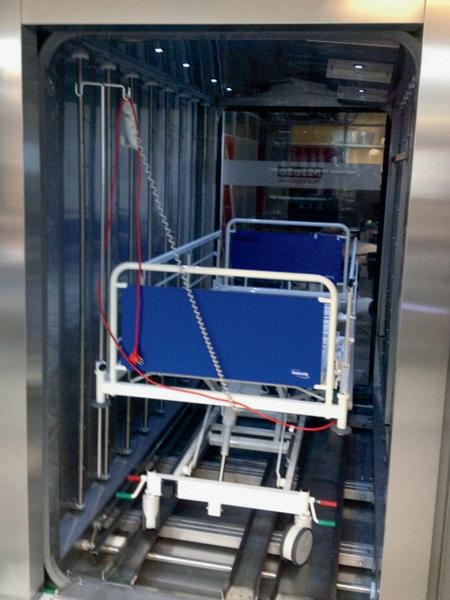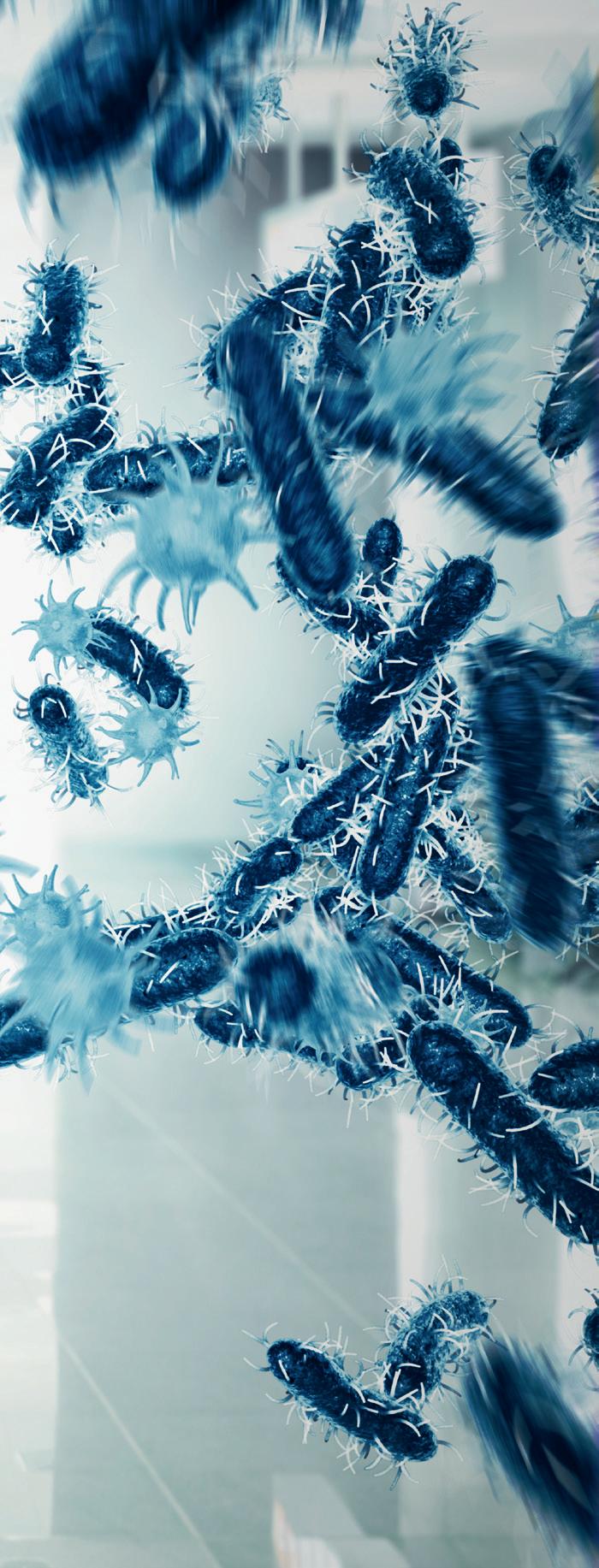
3 minute read
New initiatives help hospitals fight bacteria efficiently
In recent years, hospitals in Denmark have sharpened their focus on hygiene. A few years ago, the regional hospital in Horsens was named ‘innovation hospital’. Here they have given unwanted bacteria a fight.
Every year approx. three thousand people in Denmark die because of an infection they acquired in the hospital. This figure is 18 times higher than the number of people who die in traffic. The Regional Hospital in the Danish city of Horsens is trying to change this.
The fight against dangerous bacteria
Welcome to the long corridors in the hospital basement where the tour starts. This is where the hospital’s service staff work to make daily operations run smoothly. Behind two doors is the hospital’s wash tunnel, an advanced automatic wash system that cleans everything from beds to ceiling sheets in the operating rooms. The wash tunnel is just one of the many initiatives the Regional Hospital takes to increase hygiene.
After 17 years in the cleaning industry within hospitals and slaughterhouses, Søren Møller became Service Manager at the Regional Hospital in Horsens, where he worked for the past 21 years. He decided to buy the wash tunnel in 2015.
“It all started with the establishment of a manual washing system, and everything was ready. When we had hung up the bed, it was clear that manual washing could not be done satisfactorily, and we started to think of machines,” says Søren Møller and continues:
“We put out a tender in which we specified our requirement for the amount of water, soap, electricity and the wash time based on 15,000 washes a year. We compared the different results, and we chose the one that made the most sense. We are excited about the opportunities it opens, and many other regions and hospitals have since come to see the wash tunnel.”
High demand for washability
When Søren Møller started investigating the market, he was only looking for a bed washer. But, it soon became clear to him that the new machine could be helpful in many more areas. That is when the hospital decided to invest in another machine in line with the hospital’s expansion.

“There is a focus that future aids and materials are machine-washable because this makes them much cleaner. The machine cleans many of the things that were previously uncleaned or were cleaned by hand. Today we wash several things in the wash tunnel, which will evolve once another machine is up and running.”
The beds at the Regional Hospital in Horsens are equipped with actuator systems from LINAK so that they can be adjusted to the needs of the individual patient. Other aids are also equipped with the systems, and as these aids are incorporated in the wash tunnel, more demands are placed on future solutions chosen by the hospital, stresses Søren Møller.
“It is an absolute must that LINAK thinks washability into the systems. We would not buy the beds or aids on which patients are placed if they were not washable. All items on the bed must be able to be washed in the wash tunnel; otherwise, it will not work. Previously, the bed was washed by hand, but it was not easy to achieve a satisfactory result. So, from a hygiene point of view, it is a huge advantage when our equipment can be washed in the wash tunnel,” he says, and elaborates:
“It is a legal requirement that hygiene is in order. We work according to the patient’s safety in the hospital, where there is a significant focus on not passing on avoidable infections to patients. We also follow the
National Infection Hygienic Guidelines from the Danish Research Institute under the Danish Ministry of Health (Statens Serum Institut). For example, we review 250 rooms four times a year per INSTA800, a common Nordic standard for measuring cleaning quality. This helps us ensure that the cleaning is in order.”
Greater focus on improved hygiene
But, Søren Møller does not only see significant hygiene benefits when washing beds and other aids. At the hospital in Horsens, the cleaning is carefully delegated to different areas of responsibility among the service and care staff. It requires both parties to be constantly aware of who is responsible for what. This helps ensure that everything is resolved satisfactorily and that the care personnel staffing is managed sensibly. The main difference Søren Møller has seen over the past ten years is the increased focus on improving hygiene in hospitals. “Today, one thing I always bear in mind when deciding to buy is whether items can be cleaned. We must be able to clean all nooks and crannies efficiently. Otherwise, they are not suitable for use in a hospital,” Søren Møller concludes.
Washability at LINAK
As a developer and manufacturer of worldclass electric actuator systems for hospital applications, LINAK commits to participate in the fight to help hospitals improve hygiene.
Naturally, LINAK actuator solutions meet all international norms and standards for washability. However, some of our products meet an even higher standard because we test significantly more than the 2017 norm prescribes.
» For more information visit LINAK Australia Pty Ltd www.linak.com.au/medline-careline










